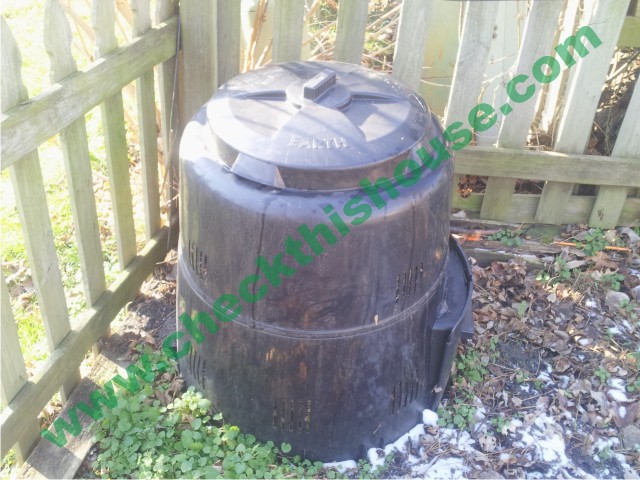What is Compost?
 Compost is one of nature’s best mulches and easy way to add nutrients to your soil. Wouldn’t you like to have that beautiful garden or grow your own organic food? Since compost improves soil structure, texture and increases the soil’s water holding capacity, why buy and waste money on any commercial products or chemical fertilizers, if you can make all natural compost free…
Compost is one of nature’s best mulches and easy way to add nutrients to your soil. Wouldn’t you like to have that beautiful garden or grow your own organic food? Since compost improves soil structure, texture and increases the soil’s water holding capacity, why buy and waste money on any commercial products or chemical fertilizers, if you can make all natural compost free…
Home Composting 101 – How to make your own compost?
It’s very easy, free, and good for environment. You can use your kitchen scraps, organic or yard waste, and reduce your household waste away from garbage can by 30 %.
There are different ways and options to start your compost;
- you can just select a convenient spot on the ground and make your compost without a bin
- you can build a bin from recycled materials like plywood or two-by-fours
- you can always find commercial bin on the market.
The microbes responsible for breaking down your compost pile need both nitrogen and carbon in addition to oxygen and water.
- Nitrogen comes from “green materials” such as fruit and vegetable scraps, grass clippings and manure.
- Carbon comes from “brown materials” such as dead leaves, wood chips, hay shredded paper.
In your compost use all fruits scraps and uncooked vegetables, any peelings or apple cores. Eggshells are great since they contain calcium but crush it first, do not add whole egg just eggshell. Coffee grounds are high in nitrogen and even if they are in paper filter just toss everything into your compost pile.
Any kind of tea; black or herbal, loose leaves or bags can be tossed it in as well. Wood ashes are good composting ingredient as well but don’t put ashes from any wood that contain petroleum. Paper, newspaper (don’t add glossy papers or magazines) or cardboard can also be added but remember to shred it first – this will speed up entire process.
If you have access to manure from horses, cows, chickens, ships, rabbits or goats it would be great, but composting can be done without it. Remember just one thing; do not use manure from dogs, cats, humans or any non-vegetarian animal.
Do not compost: meat or fish scraps or bones / any dairy products / coal or charcoal ash / treated wood or perennial weeds.

 Grass clippings can be left on the lawn so they will decompose naturally and they will enrich the soil. If you don’t want to do that you can put a thin layer in your compost, or you can mix grass clippings with other materials so they won’t clump together and block air circulation. That would cost unpleasant smell and take longer to decompose.
Grass clippings can be left on the lawn so they will decompose naturally and they will enrich the soil. If you don’t want to do that you can put a thin layer in your compost, or you can mix grass clippings with other materials so they won’t clump together and block air circulation. That would cost unpleasant smell and take longer to decompose.
Compost pile can be layered in thin layers of alternating green and brown materials or you can throw everything together and mix it well; both ways will work fine, just remember to turn your compost about every two weeks to add fresh oxygen so it will break down faster.
When you add a new layer of materials moisten it lightly and put more water in as needed especially during the summer months – always keep your compost moist, but not soaked. Keep your compost covered, this will help retain moist and heat – compost decomposes best between 120° and 160°F. If the temperature is lower it will simply take longer time to decompose.
It can take anywhere from a month to a year to produce your finished compost, final product should look, feel, and smell like rich soil. One thing, an organism that can speed up the decomposing process are worms, they simply aerate the compost.
Composting is the best way to recycle your yard and kitchen waste, it is also the number one ingredient in organic farming.




Comments are closed.